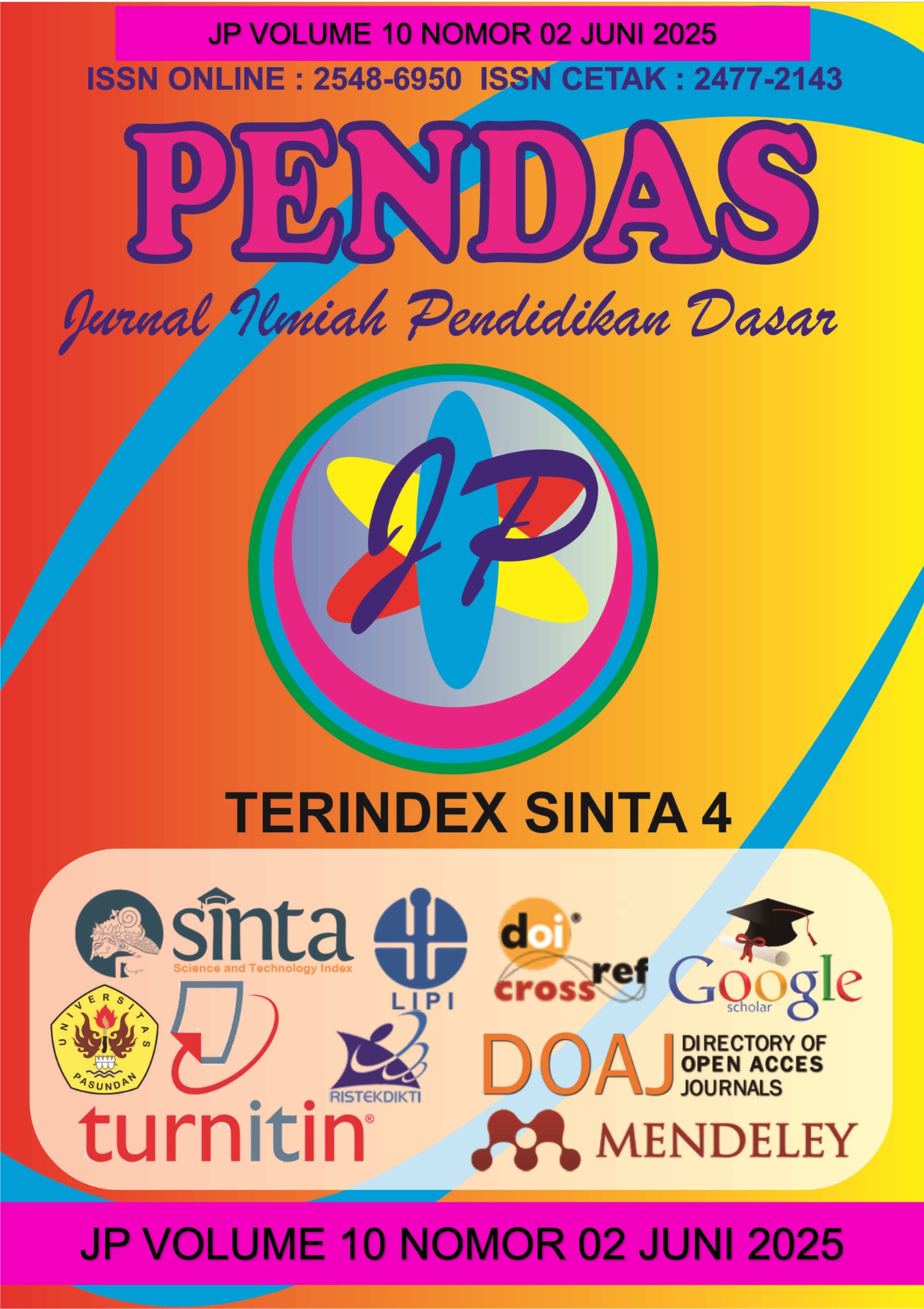ANALISIS KEBUTUHAN PENGEMBANGAN INSTRUMEN PENILAIAN KEMAMPUAN PEMECAHAN MASALAH PERBANDINGAN TRIGONOMETRI BAGI PESERTA DIDIK MA BERBASIS CBT WEB
DOI:
https://doi.org/10.23969/jp.v10i02.24506Keywords:
Needs Analysis; Assesment Instruments; Problem Solving Abilities; TrigonometryAbstract
The development of effective assessment instruments is an important element in the learning process, especially to support the achievement of educational goals. In the context of mathematics learning, especially in trigonometric comparison material, well-designed assessment instruments can help students develop critical thinking and problem solving skills. The aim of this research is to analyze the need for developing a website-based trigonometry comparison problem solving ability assessment instrument. The research method used is a qualitative method. The research subjects were mathematics teachers and MA students in one of the Ogan Komering Ilir districts. The research instruments used were teacher interviews, observations, and distributing questionnaires to students to determine the needs analysis for developing website-based problem solving ability instruments. Data were analyzed descriptively based on the results of interviews, observations and questionnaires. The research found that teachers do not yet have a CBT Web-based instrument for assessing their trigonometry comparison problem solving abilities. Teachers realize the importance of developing CBT Web-based problem-solving ability assessment instruments, but are constrained by not having the ability to develop CBT Web-based problem-solving ability instruments. The majority of students also realize the importance of a CBT Web-based trigonometry comparison problem-solving ability assessment instrument. Therefore, it can be concluded that it is necessary to develop a CBT Web-based instrument for assessing the ability to solve trigonometry comparison problems for MA students.
Downloads
References
Adlini, M. N., Dinda, A. H., Yulinda, S., Chotimah, O., & Merliyana, S. J. (2022). Metode Penelitian Kualitatif Studi Pustaka. Edumaspul: Jurnal Pendidikan, 6(1), 974–980. https://doi.org/10.33487/edumaspul.v6i1.3394
Ashari, M. K., Athoillah, S., & Faizin, M. (2023). Model E-Asesmen Berbasis Aplikasi pada Sekolah Menengah Atas di Era Digital: Systematic Literature Review. TA’DIBUNA: Jurnal Pendidikan Agama Islam, 6(2), 132. https://doi.org/10.30659/jpai.6.2.132-150
Cantika Dinda Karisma, Yuniawatika, & Erif Ahdhianto. (2023). Analisis Kebutuhan Media Pembelajaran Matematika Bangun Ruang Pada Siswa Kelas V Sekolah Dasar. Jurnal Pemikiran Dan Pengembangan Sekolah Dasar (JP2SD), 11(2), 265–276. https://doi.org/10.22219/jp2sd.v11i2.28175
Masfufah, R., & Afriansyah, E. A. (2021). Analisis Kemampuan Literasi Matematis Siswa melalui Soal PISA. Mosharafa: Jurnal Pendidikan Matematika, 10(2), 291–300. https://doi.org/10.31980/mosharafa.v10i2.662
Polya, G. (1973). How to Solve It: A New Aspect of Mathematical Method. In How to Solve It (Second Edi). Princeton University Press. https://doi.org/10.2307/j.ctvc773pk
Rahman, A. A., & Nasryah, C. E. (2019). Evaluasi Pembelajaran. In Uwais Inspirasi Indonesia.
Ratnawulan, E., & Rusdiana, A. (2015). Evaluasi Pembelajaran. Pustaka Setia.
Senita, A., & Roza, Y. (2024). Analisis Kebutuhan Instrumen Asesmen Formatif Untuk Mengukur Kemampuanpemecahan Masalah Matematispeserta Didikfase E Pada Konten Aljabar. Posiding MAHASENDIKA III, 90–100.
Downloads
Published
Issue
Section
License
Copyright (c) 2025 Pendas : Jurnal Ilmiah Pendidikan Dasar

This work is licensed under a Creative Commons Attribution 4.0 International License.



















